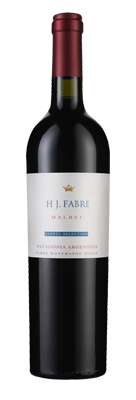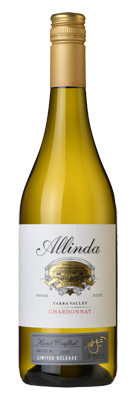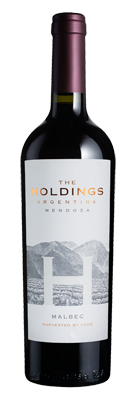Filter by
- Smooth, fruit-filled red from the southern Rhône – all Grenache, similar to Châteauneuf, but fresher$26.00 RRPfrom $18.99 when you mix 12+
- Impressively rich, elegant and satin-smooth, a Malbec masterclass from very beautiful Patagonia.$40.00 RRPfrom $32.99 when you mix 12+
- Fragrant and elegant Barossa blend of four of Bordeaux's classic grapes.$35.00 RRP$23.99 when you mix 12+
- Crianza is an approachable Rioja style, this one from one of the region's most highly rated bodegas.$35.00 RRPfrom $27.99 when you mix 12+
- Smooth, mellow Rioja Reserva with all the elegance you’d expect from this true World classic red.$42.00 RRPfrom $32.99 when you mix 12+
- "...succulent" and "very bright" 90pt Adelaide Hills Sangiovese.$42.00 RRPfrom $36.99 when you mix 12+
- 94pt Yarra Valley Chardonnay with "excellent weight and refined texture" (Wine Orbit)$25.00 RRPfrom $24.99 when you mix 12+
- Gold-winning, 94pt, Superb Value "meticulous" (Halliday) Grenache from the brilliant Bleasdale.$30.00 RRPfrom $27.99 when you mix 12+
- A McLaren Vale Mourvedre Grenache Shiraz blend with a Gold and scores of 91pts and 93pts.$45.00 RRPfrom $41.99 when you mix 12+
- "Juicy and bouncy... very appealing indeed... 93pts. Great Value." (Halliday)$28.00 RRPfrom $26.99 when you mix 12+
- Generous mouth-filling GSM from a Barossa powerhouse.$24.50 RRPfrom $22.99 when you mix 12+
- Food-friendly 95pt McLaren Vale Grenache from a 5-star winery.$42.00 RRPfrom $42.00 when you mix 12+
- "A smart blend" (Halliday) with Golds, Platinum and 94-96pt scores. "Stunning stuff" (WinePilot).$120.00 RRPfrom $110.00 when you mix 12+
- Gewurztraminer from one of Victoria’s best aromatic white producers!$30.00 RRPfrom $25.99 when you mix 12+
- 92pt, Great Value, juicy Hunter Valley Shiraz harvested early to capture maximum freshness.$28.00 RRP$19.99 when you mix 12+
- This small-batch McLaren Vale Shiraz is so good! No surprise it's won Gold already!$35.00 RRPfrom $29.99 when you mix 12+
- Pure, silky Malbec red – Argentina's great hero grape – from the highly awarded Bodegas Antigal.$28.00 RRPfrom $19.99 when you mix 12+
- $28.00 RRP$25.99 when you mix 12+
- An elegant Cabernet Merlot displaying prominent blackcurrant fruit, from the Yarra's Soumah.$30.00 RRPfrom $25.99 when you mix 12+
- 97pt Cabernet Shiraz distinguished Aussie classic blend from Wrattonbully.$50.00 RRPfrom $37.99 when you mix 12+
- Gold, 94pt cool climate, flagshipChardonnay – very stylish drop from Jason Brown.$45.00 RRPfrom $38.99 when you mix 12+
- Exclusive Single Vineyard Shiraz from Clare's superb Jim Barry estate. The '21 won Gold on debut!$35.00 RRPfrom $23.99 when you mix 12+
- A Trophy-winning, Gold, 94pt classic cool climate Chardonnay bursting with flavour.$48.00 RRPfrom $41.99 when you mix 12+
- Excellent, 92pt pure Clare Valley Cab Franc from the brilliant Pikes.$28.00 RRP$24.99 when you mix 12+
Wine FAQs
What is vegetarian wine?
Although wine is made from fermented grapes, it isn’t always vegetarian-friendly. Although grapes are the main ingredient in wine, animal-based products are often used during the winemaking process to clarify and stabilise the wine, before it is bottled. However, there are alternative products that can be used for this, allowing for the production of vegetarian-friendly wines.
Why is wine not vegetarian?
Wine isn’t always vegetarian, and that’s down to the ‘fining’ process. This clarifies wine to remove any impurities or suspended solids that can impact its clarity and stability. Winemakers typically use animal-derived products to do this, and that can make a wine not strictly a vegetarian drink.
The substances don’t remain in the wine – they are removed along with the particles they help to clear out. Depending on the type of fining agent use, the resulting wine may not be suitable for vegetarians.
Traditional fining agents can include:
Gelatin – derived from animal bones and connective tissues
Isinglass – made from fish bladders
Egg whites (Albumin) – used particularly in red wines
Casein – a protein derived from milk.
If either of the first two are used, the wine is not vegetarian.
If any of the above are used, the wine is not vegan.
What’s the difference between vegan and vegetarian wines?
Rather than traditional fining agents such as gelatin and isinglass, vegan wines are made using alternative agents.
These can include:
Activated charcoal
Silica gel (a form of silicon dioxide)
Pea protein
Bentonite (a type of clay with strong absorptive properties)
While a vegetarian diet involves eating plant-based foods and avoiding meat and fish products, some vegetarians eat eggs and milk. Wine can be included in a vegetarian diet as long as the fining agents used are also suitable for vegetarians.
As fining agents aren’t classified as ingredients and, therefore, are not listed on a wine’s label, you may wish to choose a wine labelled as vegan to be sure of its suitability.
How do you know if a wine is vegetarian?
Look for a wine labelled as vegetarian or bearing a vegetarian symbol or logo. Occasionally, wineries may even specify the fining agents they’ve used in their winemaking process online.
On our website, you can check the information section of the wine description to see if a wine is vegetarian.
Or you can simply browse the wines on this page.
Do vegetarian wines taste better?
How a wine tastes is influenced by many factors, principally the grape variety used, the soil and climate in which grapes are grown, winemaking techniques and how the wine is aged.
The same is true of vegetarian red wine and white wine.
Traditional animal-derived fining agents and their vegetarian alternatives are used to clarify and stabilise wine – not to impart flavour. They are used in small amounts and are removed from the wine along with the impurities they clarify.
Consequently, the choice of fining agent usually has a minimal impact on the taste of the wine.
Some winemakers choose not to fine or filter their wines at all. These wines might present different flavours compared to conventionally produced wines, but this is related to the overall winemaking philosophy and methods, not specifically whether the wine is vegetarian.
Is vegetarian wine popular in Australia?
Vegetarian wine is becoming more popular in Australia as consumers become more aware of the impact their choices have on their health and the environment. This has led to a rise in demand for vegetarian products, including wine. Some people prefer vegetarian wine due to ethical concerns about the use of animal-derived products in the winemaking process.
Australia’s thriving wine industry has recognised and supported this trend by producing more wines using vegetarian-friendly methods.
How can I pair vegetarian wine with food?
No vegetarian dish would be complete without a delicious vegetarian wine to pair with it.
Pairing vegetarian wines with food follows the same rules as traditional food and wine pairings. Your focus should be on matching the wine’s characteristics with the flavours and textures of the dish. For example, a crisp, zesty Sauvignon Blanc pairs wonderfully with a fresh, crunchy green salad or a tangy goat cheese tart.
A full-bodied Cabernet Sauvignon with robust tannins and dark fruit notes would work well with a rich, hearty dish like mushroom and lentil stew or vegetable lasagne. The wine provides a delicious balance to the earthiness of these dishes.
Finish off your feast with a glass of late-harvest Riesling paired with a slice of apple strudel – the bright acidity and delicate floral notes of a Riesling would beautifully balance the richness of the dessert. Alternatively, try an Aussie Sparkling wine such as The Black Pig Sparkling White or Howard Vineyard Sparkling Pinot Noir Chardonnay with a tropical fruit Pavlova. The effervescence and vibrant fruit flavours can cut through the sweetness of the meringue and fresh fruit.



























